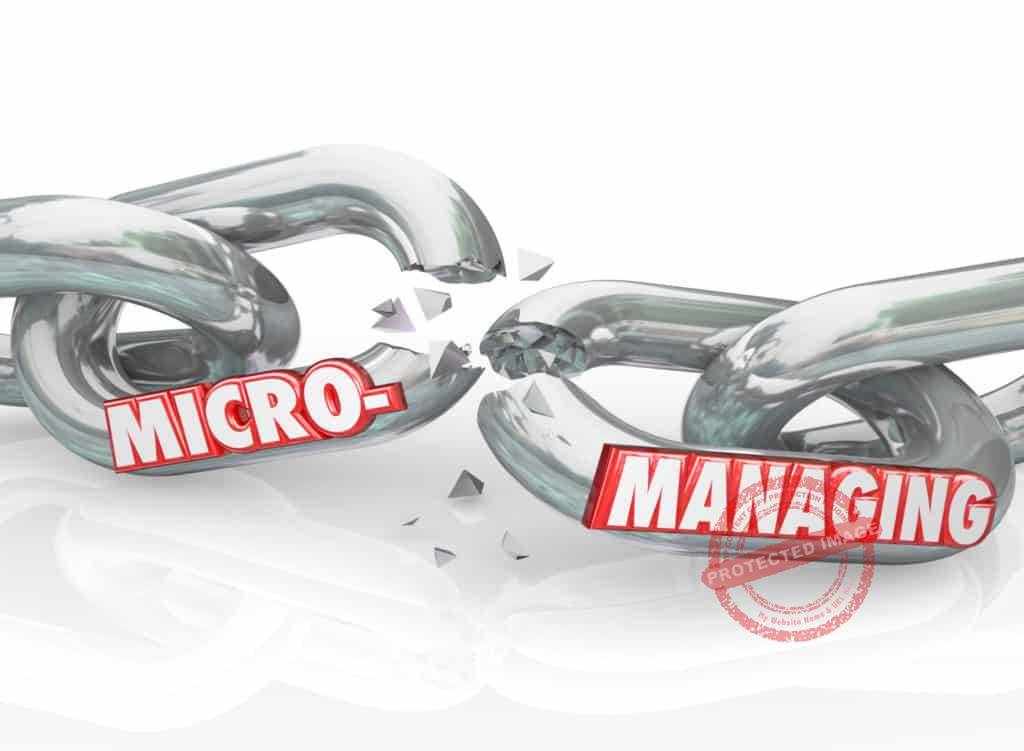If you don’t believe in yourself, who will? The importance of self-confidence in leadership cannot be overemphasized. So, as a leader, if you lack self-confidence, it means that you are your number one detractor.
How will you lead others if you don’t even think you can?
Self-confidence is an important trait any leader should have.
It is one of the most sought-after qualities that organizations require from an employee that will manage and will lead teams to success.
Understanding The Importance Of Self-Confidence In Leadership

Is believing in yourself truly that valuable a trait as a leader?
Yes.
You can’t just fake it to make it if want to lead people and earn their trust.
Self-confidence, especially in leadership, makes you determined to realize your visions and goals despite challenges and setbacks.
You know well that you can achieve whatever you plan.
And you are sure that you can take your team with you to success.
Showing confidence in the workplace effectively boosts the morale of your employees.
Self Confident Leaders Become Fearless

Confident leaders can become fearless.
This courage makes you do all the right things without hesitation and anxiety.
Self Confident Leaders Communicate Confidently

It doesn’t matter whom you’re talking to if you’re confident and secure in your abilities.
You know you can maintain your dignity and integrity whether you are talking to the industry’s top dogs or the people at the bottom of the organizational chart.
Self-confidence also allows you to deliver the right words at the right place and at the right time.
Even in emergency situations, you can calmly give out directives and reassure people that everything will be all right.
Self Confidence Helps Ideas Flow

With proper communication and confidence skills, you can maintain the flow of ideas within your team.
You must be willing to listen to their grievances and opinions.
You also believe that their outputs have value.
Those are big bonuses as a leader from your team’s perspective.
They will definitely appreciate you for those.
Leading like that will ultimately result in a team that is unafraid to voice out their thoughts.
Of course, remember that you should make some rules about this.
You should make sure that they will prioritize presenting ideas which are useful to the team.
Also, they should prepare their pieces of evidence and facts before they talk.

Talking and listening, after all, eats up time.
It would be a waste of time to deal with problems and ideas that are unrelated to work and are not factual (e.g. rumors and gossip).
Even if listening to them will make them feel good, you must focus on your team’s priorities instead of just focusing on a few individuals.
Self Confidence Increases Self Assurance

Another importance of self-confidence in leadership is self-assurance.
The last thing that you will feel is insecurity if you have self-confidence.
You have high levels of faith and trust in your confidence skills and capabilities.
You know well that you are the right person for the job.
Also, you won’t be affected by those who doubt you.
Instead, you can prove them wrong and possibly win them over.
Self Confidence Boosts Your Skills And Ability

Self-confidence creates a beneficial satisfactory effect.
It helps you optimize your skills and capability.
Again, this doesn’t mean that you should fake it to make it.
Fake it to make it is not self-confidence — that’s just optimism.
If you know that you can’t do something, that’s fine. Let somebody else do it instead. Remember not to confuse foolishness with confidence.
Self Confidence Enhances Work Satisfaction

As mentioned, self-confidence can let you accomplish your goals, whether they are big or small.
Accomplishments provide a lot of gratification and happiness.
This can be addictive and that’s not a bad thing!
It is definitely is another importance of self-confidence in leadership.
Self Confidence Improves Follower-Trust

It’s difficult to follow someone who always double-guesses his or her decisions.
It’s like hiring a hiking guide who always needs at least 10 minutes to decide which of the two paths to take.
Being self-confident allows you to promptly make the best decisions for your team.
You don’t contradict yourself after choosing the option you initially thought was correct because you stick to and follow through with your choice.
Your people need not be worried that you will flip your decision at any moment.
They believe that you are competent enough to commit to anything you say.
Self Confidence Helps You Aim High — And Then Higher

You don’t stop at planning, following, and working on your vision.
You always raise the stakes and are willing to take risks to achieve much higher goals for yourself and your organization.
Settling for average is not in your books because you believe you are the best and only deserve the best.
Yet another importance of self-confidence in leadership.
Self Confidence Helps You Become Calm And Composed

The next importance of self-confidence in leadership is the calmness and composure it gives you.
Aside from being less prone to insecurity, you are also less prone to bouts of anxiety and panic.
It will become rare for you to get alarmed and freak out.
You treat difficulties as challenges and you treat failures as lessons.
While you are always chilled and relaxed when given bad news, it doesn’t mean that you do not have a sense of urgency.
You are like this because you are confident enough that whatever obstacles come your way, you will still achieve the goals you have set.
Self Confidence Means Being Unafraid To Take Risks

Being a risk taker doesn’t mean that you will just gamble away everything on your plate.
All the risks you take are always premeditated and planned.
You do take high risks, but you make sure that the odds and conditions of those risks are favorable to you.
Being self-confident allows you to not be bothered by the unknown.
This is another key importance of self-confidence in leadership.
You forge on despite feelings of uncertainty.
Of course, you create plans to soften and lower the risks first before you move forward.
Self Confidence Means You Take Criticism And Mistakes Well

You are confident that you know the things you are doing.
But you’re not a person who believes that you are perfect.
You admit to yourself that there is always room for improvement.
The only difference you have with insecure people is that you believe you will definitely improve.
In leadership, this factor of self-confidence importance is particularly crucial.
You hunger for criticism and feedback as well as value whatever your followers have to say. You listen to them and absorb their ideas.
And you respond with gratitude and confirmation that you have heard them.
Mistakes happen.
Again, you are not a perfect being.
Even if you are confident with what you are doing, you will be wrong sometimes and you should not be afraid to correct yourself.
Also, you know that mistakes can easily lower your self-esteem, so you don’t let them get to you.
Be always self-aware during times like these and reassure yourself.
Self Confidence Means You Encourage Changing For The Better

Confident leaders are unafraid of changes.
And you are definitely not afraid of starting those changes yourself.
If something has to go, it has to go.
You do not hesitate to do it because you are confident that you are making the right decision.
Remember that most people hate changes.
They often dislike being placed outside their comfort zone.
So this is where the importance of self-confidence in leadership comes in.
Creating changes requires courage and lots of confidence.
However, you do not start changes carelessly.
You create a plan, go over it thoroughly, let your followers criticize it, and then execute it if it receives the approval of the majority.
Self Confidence Helps You Earn The Trust And Respect Of Your Team

In leadership, one of the biggest benefits and importance of self-confidence is trust.
As you are someone who believes that you can get things done and actually pull through, you appear reliable and valuable to your crew.
They put their trust in you because they know that you can lead them to the right path to success.
Your confidence toward yourself can infect others.
Effects Of The Lack Of Confidence In Leadership

When the importance of self-confidence in leadership is overlooked, it can cause some disastrous effects on you and your team.
You might not be aware that you are already doing and causing some of these effects, so each section will provide some tips on how you can fix them.
Self-confidence cannot be gained in a day, week, or month.
It will take time for you to apply the lessons you learn on how to be a confident leader.
Be realistic: People cannot just magically wish for self-confidence and get it in an instant.
Accumulating and building confidence is a slow and challenging process.
So, in the meantime, you need to perform some practical measures to minimize the damage you can cause from lack of self-confidence.
Here are the effects of lack of confidence in leadership.
Difficulty in Praising Others

You find it challenging to give praise to others, and this could be caused by multiple reasons.
However, this is commonly caused by a lack of confidence.
How does lack of confidence relate to the difficulty in praising others?
Well for starters, you get jealous.
You ask yourself why others were able to achieve their goals and you weren’t.
You also ask yourself why they are better than you.
The only way you can feel that you are better than or at least equal to them is to not recognize the achievements and success of others.
You believe that if you praise them, you are considering that they are better than you.
To work around this while you build your self-confidence, try treating the act of praising other people as one of your tasks.
It doesn’t matter if you say it convincingly and sincerely or not.
The point here is that you need to get used to it until you become genuinely capable of truly praising others’ successes.
The Tendency To Take All Credit

Aside from jealousy of the success of others, you might become a person who takes credit even if it is not rightfully yours.
After all, you have the power to do so and it has become the norm that the team’s success is a leader’s success.
Lack of confidence makes you hungry for recognition.
So you take your fill by stealing the spotlight from your team members who did their best.
The immediate fix for this issue is to stop taking any credit even if you deserve it.
Wait until people recognize your efforts and achievements.
Let your accomplishments speak for themselves.
Withholding Important Information

Your lack of confidence can easily make you do some crooked things.
Since you believe you have no power to lead the team, you try your best to gain it by withholding important information.
This action allows you to feel that you still have control.
You believe that withholding information provides you with a huge advantage.
You have advanced knowledge of what may happen and what you need to do.
However, keeping important details sets up your team for failure.
The information you withhold is crucial for them to achieve theirs and your organization’s goals.
So if you think that your team’s failure feels good, well, stop that thought.
It was mentioned that a team’s success is also the success of its leader. The same applies to failures.
The easy fix for this is to share the crucial information that they need to know; it’s your job after all.
Plus, it doesn’t even matter if you have self-confidence or not — you should just do what you are supposed to do.
Criticizing Others

In order to make you feel others are not greater than you, you criticize them.
You focus on their mistakes and shortcomings.
You do this because you believe that criticizing others will shift the focus on your flaws.
Note that those constant and unnecessary criticisms will only work against you.
It will immediately hint to your followers that you are insecure and that you are trying to shift their attention away from your insecurities.
Another effect caused by nonstop criticism is that the trust of your followers in you will quickly wear out.
They will also feel constant anxiety.
They will do everything they can to avoid being on the receiving end of your criticism.
This will also prevent them from working efficiently, causing them to become less creative and productive, and make them avoid any form of risk.
Tone it down a little and make sure your remarks on your team members’ performance are objective. You don’t need to stop being critical; you just need to do it right.
Micromanaging

The importance of confidence affects your ability to manage your team with enough trust and let them operate with minimal supervision.
When you start micromanaging, it means that you have two problems.
One, you don’t have confidence in your team.
Two, you lack the confidence required in your leadership and management skills.
You micromanage because you believe you have lost your control and trust over the team and/or have built your team to be dependent on you and they have lost the ability to operate independently.
If you are micromanaging now, it is time for a reset.
Reset your trust and your perspective.
View your team when they were at their peak performance.
You should do the same for you.
Let go of micromanagement, and find the real culprit as to why you need to or have resorted to micromanagement.
Stop Lengthy Talks

If one of the members of your team lost his or her attention to what you are saying, ask that person why directly.
Could it be your fault?
You might have been talking too much.
Take a few minutes of your time to reflect.
Are you explaining too much?
Are you overly justifying your actions?
Do you think that your team cannot understand your decisions unless you extend your meetings?
Have some confidence in yourself and your team.
Your daily, weekly, or monthly goals do not necessarily need an hour of nonstop talking or explaining.
Also, don’t hog the limelight. Give your team members time to speak.
Not only will you appear confident, but you will also get some healthy breaks.
Indecisiveness Is Another No-No

If you have no self-confidence, making decisions for yourself and others will be a mind-numbing task.
So you should ask yourself this: Why are you a leader in the first place?
Making decisions and leading a group of people are two of the most important things included in your job description.
Truth: You cannot instantly become self-confident.
So, in the meantime, do something about it.
First, gather all the information you can.
Second, analyze all the possibilities.
Third, eliminate the other options on your table.
Fourth, consult your team and make it a team decision.
With Self Confidence Avoid Being Arrogant

This is a tricky one.
Leadership or not, self-confidence can easily be seen as arrogance, especially by people who have low self-esteem and don’t see its importance.
That’s not surprising.
There is a thin line between arrogance and confidence.
One simple misstep, and you will fail to realize that you are already speaking arrogantly and acting cocky.
Fortunately, even if you have already crossed the line, there is a way to remedy this.
If you believe you are already acting arrogant, immediately make sure to start being considerate and tone down your confidence level.
Don’t wait for someone to call you out.
Remember that your self-confidence stems from your faith in yourself.
If people truly see you as an excellent leader, they will do the tooting of your accomplishments for you — and boost your self-confidence as well.
Final Thoughts

Being a leader is not an easy job.
You have a lot riding on you; you are responsible for your staff and directing them toward the right path.
So you’ll need a lot of confidence to pull off being a decent leader.
But if you’re determined to work on your leadership skills and understand the importance of self-confidence in leadership, you’re on the right track.
Building confidence is a continuous process.
It is a commitment you should make every day.
As long as you stick to that goal, you will be able to become a good leader and gain the trust of your team.
Do you have the self-confidence it takes to lead your team to greater heights?
Please leave us your comments!
Click on Buy Now For a PDF Version of This Blog Post
 |










